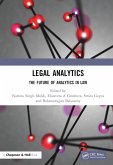Data-Driven Law: Data Analytics and the New Legal Services helps legal professionals meet the challenges posed by a data-driven approach to delivering legal services. Its chapters are written by leading experts who cover such topics as:
- Mining legal data
- Computational law
- Uncovering bias through the use of Big Data
- Quantifying the quality of legal services
- Data mining and decision-making
- Contract analytics and contract standards
In addition to providing clients with data-based insight, legal firms can track a matter with data from beginning to end, from the marketing spend through to the type of matter, hours spent, billed, and collected, including metrics on profitability and success. Firms can organize and collect documents after a matter and even automate them for reuse. Data on marketing related to a matter can be an amazing source of insight about which practice areas are most profitable.
Data-driven decision-making requires firms to think differently about their workflow. Most firms warehouse their files, never to be seen again after the matter closes. Running a data-driven firm requires lawyers and their teams to treat information about the work as part of the service, and to collect, standardize, and analyze matter data from cradle to grave. More than anything, using data in a law practice requires a different mindset about the value of this information. This book helps legal professionals to develop this data-driven mindset.
Dieser Download kann aus rechtlichen Gründen nur mit Rechnungsadresse in A, B, BG, CY, CZ, D, DK, EW, E, FIN, F, GR, HR, H, IRL, I, LT, L, LR, M, NL, PL, P, R, S, SLO, SK ausgeliefert werden.









